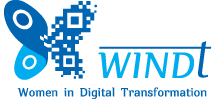As the world becomes increasingly digital, visibility into the digital gender gap is crucial. Every year, the data show a persistent gender divide in access to the information and communication technologies (ICTs) that promote social and economic growth.
The Gender Digital Divide Index (GDDI) is a pilot benchmarking tool that measures a country’s progress in narrowing gender divides in digital development. The GDDI takes a theory of change approach that evaluates countries’ foundations, enablers, and impacts across thirty indicators that include quantitative and custom qualitative data. We created and used the GDDI tool to conduct a pilot study that compares gender digital divides among twenty countries with different income levels across the world.



